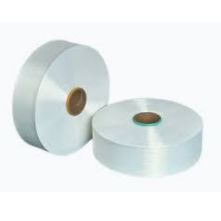Get A Quote
BIS Certification for Polyester Partially Oriented Yarn (POY) IS 17262: 2019

Polyester Partially Oriented Yarn (POY) is a semi-finished yarn produced by partially drawing polyester fibers, making it ideal for further processing into fully oriented yarns (FDY) or texturized yarns (DTY). Widely used in the textile industry, POY serves as the foundation for fabrics, upholstery, and various industrial products. It is essential for applications that require subsequent processes such as dyeing, weaving, and knitting. Compliance with IS 17262:2019 ensures that Polyester POY meets stringent standards for tensile strength, elongation, and uniformity, ensuring its suitability for high-quality fabric production.
Introduction
In accordance with the Quality Control Order 2023, DPIIT has made BIS certification mandatory for Polyester Partially Oriented Yarn (POY) under IS 17262:2019, effective from January 1, 2024. This certification ensures that only high-quality Polyester POY is marketed in India, supporting the textile industry and guaranteeing compliance with safety and quality standards.
Why BIS Certification is Necessary for Polyester POY
BIS certification ensures that Polyester Partially Oriented Yarn (POY) meets the stringent requirements of IS 17262:2019, guaranteeing its quality, uniformity, and safety for textile applications. This certification confirms that the yarn possesses the necessary mechanical properties for further processing in fabric manufacturing and ensures consistency in performance. It also certifies that the yarn is free from contaminants and defects, making it suitable for high-quality production. BIS certification provides market access by assuring manufacturers and consumers that the product adheres to both national and international standards, while also ensuring legal compliance with the Bureau of Indian Standards Act, 2016, preventing potential penalties for non-compliance.
Overview of Indian Standard IS 17262:2019
IS 17262:2019 outlines the quality standards for Polyester Partially Oriented Yarn (POY), specifying key requirements for material composition, including the drawing and processing of polyester filaments. It defines essential physical properties such as tensile strength, elongation, and uniformity, ensuring the yarn's suitability for further processing into higher-grade yarns. The standard also sets guidelines for the yarn's appearance, emphasizing visual qualities like uniformity and smoothness. Additionally, it provides packaging and labeling requirements to ensure safe storage, transportation, and proper handling of the yarn, preserving its quality throughout the supply chain.
Process for BIS Certification for Polyester POY
- Application Submission: Manufacturers submit an application form along with all required documents to BIS.
- Documentation Review: BIS reviews the submitted documents to verify compliance with IS 17262:2019.
- Factory Inspection: BIS conducts a facility inspection to assess production processes and quality control measures.
- Sample Testing: Product samples are tested in BIS-approved laboratories for mechanical and physical properties.
- Certification Grant: Upon successful testing and inspection, BIS grants certification, allowing the use of the ISI mark on Polyester POY products.
Documents Required for BIS Certification for Polyester POY
To obtain BIS certification, manufacturers must submit the
following documents:
- Completed application form
- Manufacturing process documentation
- Quality control plans and procedures
- Test reports from BIS-accredited laboratories
- Factory layout and equipment details
- Business registration documents
- Product specifications and technical data
- Declaration of conformity to IS 17262:2019
Additional documentation may be required based on specific compliance needs.
BIS Documents For Domestic and Foreign Manufacturer Check
BIS ISI Mark Certification Costing And Timeline
To Know The Process in Detail, Please Visit:
Under BIS Registration Products ISI and CRS
Conclusion
BIS certification for Polyester Partially Oriented Yarn (POY) under IS 17262:2019 ensures the yarn's quality, durability, and compliance with industry standards, supporting India's textile sector. This certification improves product quality and ensures the yarn’s suitability for various textile manufacturing applications. EVTL India offers comprehensive support throughout the BIS certification process, including documentation, regulatory submissions, and compliance management. By partnering with EVTL India, manufacturers can streamline the certification process, enhancing the market readiness of their Polyester POY products for both domestic and international markets. Contact EVTL India today for expert assistance with BIS certification for Polyester POY and other textile products!
Free Call Back
Latest News & Update
📅 BIS Critical Component List (CCL) Updates for Solar PV Modules
🕒 BIS Fee Concessions for MSMEs and Startups | EVTL India
📅 Guidelines for Implementation of Essential Requirements for Security of CCTV
🕒 Omnibus Technical Regulation (OTR) Amendment Order, 2025
🕒 Extension of Timeline for Filing Annual Returns by Battery Producers
📅 Extension of Timeline for Filing Quarterly and Annual Returns for E-Waste
🕒 Extension of Concurrent Running Period for IS 302-1: 2008 and IS 302 (Part 1): 2024
🕒 BIS Guidelines for Grant of Licence (GoL) | EVTL India
📅 CPCB Guidance on filing of Application, Fees and more
🕒 CPCB Notification on Labelling of Plastic Packaging
📅 Mandatory Compliance for Input Materials of Steel and Steel Products for Imports
🕒 BIS Guidelines for Scheme-X Certification for OTR-Regulated Products
📅 BIS Upgrades Product Certification License Numbers to 10-Digit Series
🕒 BIS Certification No Longer Mandatory for 14 Chemical & Polymer Categories
Why Choose EVTL INDIA
Expertise in Indian Regulatory Standards
End-to-End Support
Trusted by Top Indian & Global Brands
Fast Processing & Transparent Pricing
Strong Liaison with Indian Authorities
Company Profile















